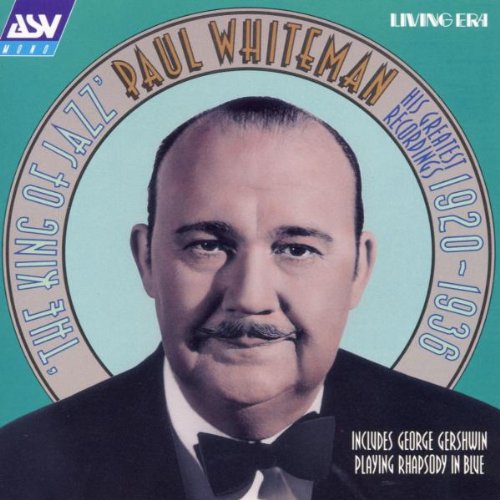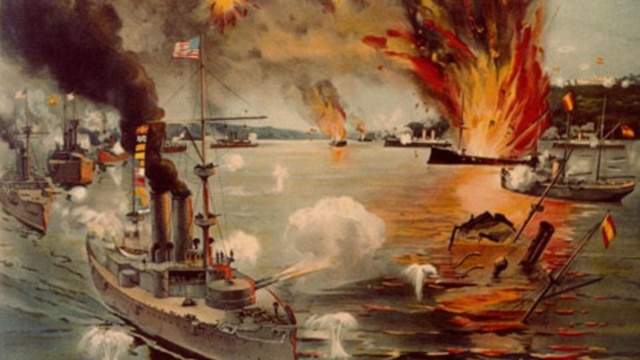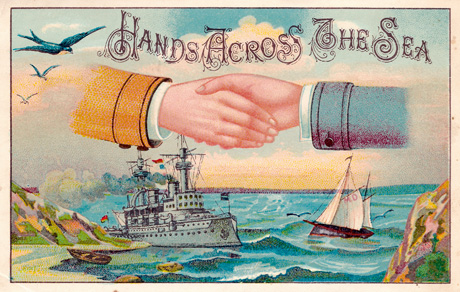"Jazz came to America three hundred years ago in chains."
AUTHOR: Paul Whiteman
AUTHOR: Paul Whiteman

MEANING OF THE QUOTE:
"Jazz is a form of music that came about
through the sufferings of people."
through the sufferings of people."
COMPOSER
SOUSA



HANDS ACROSS THE SEA
United States Air Force
Band of the Rockies



HANDS ACROSS THE SEA
http://kiwi6.com/file/kcgsl688rd
 |
| http://www.loc.gov/item/sousa.200028155/ |
composed in 1899 by John Philip Sousa
and received its premiere later that year on
April 21, at the Philadelphia Academy of Music
 |
| http://loc.gov/pictures/resource/det.4a12674/ |
where he dedicated it to the Highty-Tighties and the
Regimental Band of the Virginia Tech Cadet Corps.
 |
| Band of the 2nd Virginia Infantry Volunteers, circa 1890 |
The title of this wonderful march is
believed to not be addressed to any
particular nation, but to all America's
friends (allied countries) abroad.
"Hands Across the Sea" refers to the
collective ability of Sousa, the March
King, and his band (who made many
European tours beginning in 1900 that
included concerts in England, Ireland,
Scotland, and Wales) to affect people
in many lands, as a symbol to country-
men and America's friends overseas.
In the "Great Lakes Recruit" of March,
1918 (a magazine devoted to the
interests of the United States Naval
Training Station at Great Lakes, Illinois)
 |
| The Great Lakes Recruit Magazine |
Sousa discussed the justification
 |
A painting of the Battle of Manilla Bay (1898) in which the
United States Navy defeated the Spanish Navy
|
(to which this piece was written
a short time after its end)
 |
African Americans from the 9th Regiment Cavalry
(Nicknamed the The Buffalo Soldiers) during the Spanish-American War
|
 |
| Frederick Remington: Charge of the Rough Riders at San Juan Hill |
 |
| Steve Penley: Teddy Roosevelt and the Rough Riders |
saying,
"After the Spanish war there was some feeling in Europe
against our republic regarding this war. Some of the
nations...thought we were not justified while others
gave us credit for the honesty of our purpose."
 |
| Surrender of Santiago de Cuba, July 13, 1898 |
He then said,
"One night I was reading an old play
and I came across this line,"
a quote by the English diplomat,
and he added,
"That almost immediately suggested
the title 'Hands Across the Sea.'"
When the march was published the
sheet music carried this quote. The
vision of "Hands Across the Sea"
came to Sousa as an enactment of
that concept to bolster peaceful ties
between nations especially to any
country on the other side of the
Atlantic Ocean. The march's title
refers to the bonds of friendship
which can grow from conflicts such
as the Spanish-American War.
It has since been popularized to
symbolize a handshake between the
United States and the United Kingdom.
When this march was first played by the
Sousa band it was so well received that
the band was obliged to repeat it three
times. Sousa family members told the
story of how "Hands Across the Sea" was
entered into a competition for marches in
1899. Sousa was awarded second prize.
The first place composition was written by
a Baptist minister who, later, modestly
claimed only a meager thirty or
forty copies were sold.
The listener will find little in this three-
minute march that varies from Sousa's
more martial style; written in cut time and
follows the standard march form:
INTRODUCTION/AA/BB/CC/DC/DC
"Hands Across the Sea" opens in the key
of F major with a jaunty, carefree theme,
of F major with a jaunty, carefree theme,
the wind sonorities light and generally in
their middle and upper ranges. An equally
attractive march appears midway through, its
manner initially mellow and nonchalant. It
gradually turns more animated and colorful,
suave wind sonorities. The work closes in B-flat
major with this spirited theme played proudly,
the low brass counter-melody flamboyant,
the cymbals crashing, and the whole
brimming with festivity and vivid color.
"Hands Across the Sea" (a standard in
band literature) became and remains one
of Sousa's most popular and best selling
marches of all time and is still widely
played by bands. It was the last march that
Sousa conducted with the U.S. Marine
Band Orchestra before his death in 1932.



LINKS












